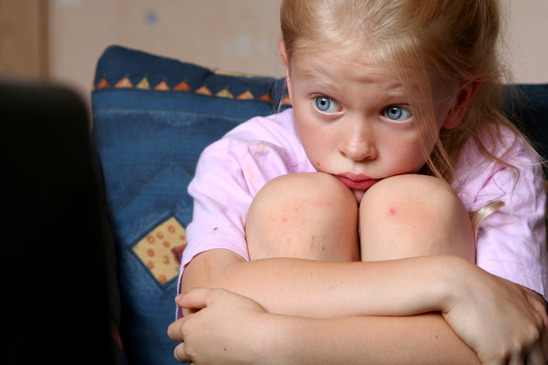An article written by Megan Blandford which I consulted on.
Megan writes – One of my children was bullied quite intensely last year.
In the end, it was hard to get her to school each day because she was so worried about what might happen.
And sadly, the summer holidays didn’t mark a magical end to those concerns: she’s now really nervous about how this coming year will go. She’s a bundle of mixed emotions: wary and anxious that it might all happen again, yet hopeful that this year will be smoother.
Like all parents, we’re keen for our child to start term one on a positive note. We want her to head off to school happily, to learn and to have some fun with her friends along the way.
But this year, that simple aim is taking a little extra work.
These are some of the strategies we’ve been using at home to help her feel ready and positive about the year ahead.
Talk, talk, talk – and then, talk some more
The number one thing we can do as parents is to listen, while our kids talk.
The fact that our 10-year-old has spoken to us a lot about her experiences at school – and continues to do so – is something I’m really thankful for.
But kids aren’t always willing to open up about what’s bothering them.
“A lot of the kids that I see in counselling haven’t really had those full discussions with their parents,” says parenting expert Dr Karen Phillip. “They don’t want to upset and distress their parents, they’re worried how their parents will react (will they go crazy and challenge the child and the school?), and some children feel they’ll disappoint their parents by not being able to handle it themselves.”
“Children can have these perceptions, and perceptions become reality.”
So, if your child isn’t telling you what’s worrying them, how can you help them prepare to have a better year?
Dr Phillip suggests two practical strategies:
1. “Open up to your child by sharing a story, such as, ‘When I went to school this is how I felt sometimes, and I felt a bit worried talking to my mum or dad about it as well, but when I did talk to them it felt like my worry was eased’. Tell your child that you’d really like to understand how they feel.”
2. Don’t ask your child to ‘tell’ you things, invite them to ‘share’. “Kids are always told not to dob or tell, so it becomes a negative word. Sharing sounds so much better to them. You might say, ‘Are you able to share what you feel to help me understand?'”
Contact the school
We’ve had regular conversations with our daughter’s teacher, principal and wellbeing officer over the past few months, and have requested that these continue throughout the coming year.
Without these discussion, I think it’s hard for them to know exactly what’s been going on and how much it’s affected her.
For a parent who’s never stepped foot in a principal’s office before – as a student or as a teacher – it’s been hard for me to get past the idea of being a ‘meddling parent’. However I’m now really focused on keeping all the main adults in her life on the same page when it comes to her wellbeing.
Help them find a place they belong
Life is really challenging for kids if they feel excluded or different from everyone, so Dr Phillip suggests trying to help them find somewhere they belong at school.
“In higher year levels of primary school and into high school, it’s good to join in a group of like-minded children – a sporting group, debating group or drama club, for example – so they can find a new niche.”
This serves two purposes: helping your child find their tribe, and encouraging them to focus on the positive activities and people around them.
Such clubs aren’t really an option at my daughter’s smallish country school, but we have been able to encourage her to connect with a supportive group of friends, who she can hang out with at school and go to when things are tough.
Don’t give advice
This is a tricky one for us parents! But Dr Phillip says it’s vital that a child feels they have ownership of a situation and its solutions.
“You might ask, ‘What do you think you could have done last year to make it easier for you? What did you learn from it?'” she says. “So we throw it back to the child, regardless of their age. They can then search their neural pathways for answers that work for them.”
When we, as parents, tell them what to do, the child doesn’t own it. “You need to guide them, not tell them what to do,” Dr Phillips continues.
“When it becomes about their ability and an opportunity to turn things around and become stronger, it’s a lesson in resilience.”
We’ve been spending the school holidays actively implementing this approach: prompting thoughts about how this year can be more positive, and equipping our daughter with useful tools and strategies to deal with any problems should they arise.
And, after all that, we’re just going to firmly cross our fingers that she has a better year. She deserves it.
The article on Essential Kids
Read more from Dr Karen






